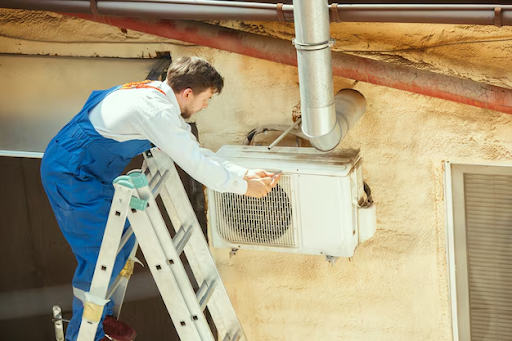As the climate continues to change, extreme weather events are becoming more frequent and intense. From powerful storms and heavy snowfall to scorching heat waves and prolonged droughts, it’s crucial to ensure that your home is prepared to withstand these challenges. In this article, we’ll explore practical steps you can take to safeguard your property and ensure the comfort and safety of your family during extreme weather conditions.
Prioritize Residential HVAC Repair
Your home’s heating, ventilation, and air conditioning (HVAC) system plays a vital role in maintaining a comfortable indoor environment, especially during extreme weather events. Regular maintenance and residential hvac repair can help ensure that your system is running efficiently and effectively, reducing the risk of breakdowns during critical times. Consider scheduling a tune-up with a professional technician to ensure that your HVAC system is ready to handle the demands of extreme weather.
Inspect and Maintain Your Home’s Exterior
The exterior of your home is the first line of defense against extreme weather conditions. Regularly inspect your roof, siding, windows, and doors for any signs of damage or wear and tear. Repair or replace any damaged components to prevent water intrusion, air leaks, and other issues that can compromise your home’s structural integrity and energy efficiency.
Develop an Emergency Plan
In the event of a severe weather event, it’s crucial to have a well-defined emergency plan in place. This should include identifying safe rooms or shelters within your home, stocking up on essential supplies like food, water, and first-aid kits, and establishing a communication plan with family members and friends. Additionally, consider investing in a backup power source, such as a portable generator or a whole-house generator repair, to ensure that you have access to electricity during power outages.
Protect Your Landscaping
Your home’s landscaping can also be vulnerable to extreme weather conditions. Prune trees and shrubs regularly to prevent damage from high winds and heavy snowfall. Consider planting drought-resistant vegetation and installing efficient irrigation systems to minimize water usage during dry spells. Additionally, ensure that your gutters and downspouts are clear of debris to prevent water from pooling around your home’s foundation.
Stay Informed and Prepared
Staying informed about upcoming weather events and being prepared for the worst can help you and your family stay safe and comfortable during extreme conditions. Monitor weather forecasts and emergency alerts, and be ready to implement your emergency plan if necessary. Consider signing up for local emergency notification systems and staying connected with community resources for additional support and guidance. Regularly review and update your emergency plan to ensure that it remains relevant and effective. Practice emergency drills with your family to ensure that everyone knows what to do in case of a severe weather event. By staying informed and prepared, you can react quickly and decisively when faced with extreme weather conditions, minimizing the potential for harm and maximizing your chances of weathering the storm safely.
Conclusion
Preparing your home for extreme weather conditions is an ongoing process that requires diligence, planning, and proactive maintenance. By prioritizing residential HVAC repair, inspecting and maintaining your home’s exterior, developing an emergency plan, protecting your landscaping, and staying informed and prepared, you can help safeguard your property and ensure the well-being of your family during challenging weather events. Remember, taking these precautions can not only provide peace of mind but also help minimize the potential for costly damage and disruptions to your daily life.

